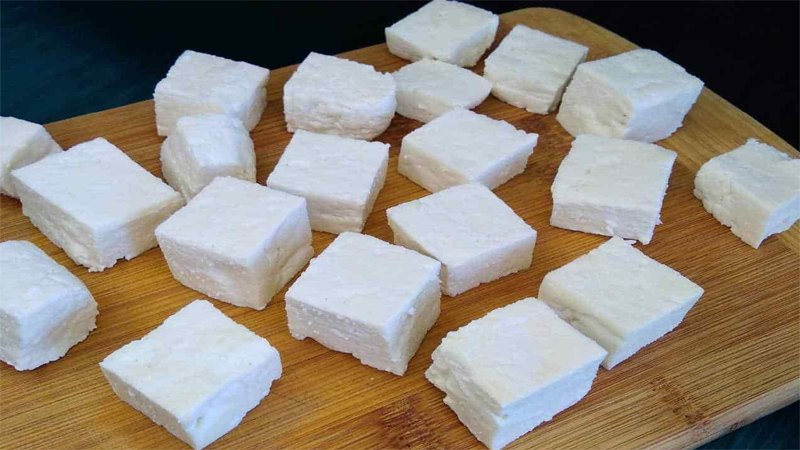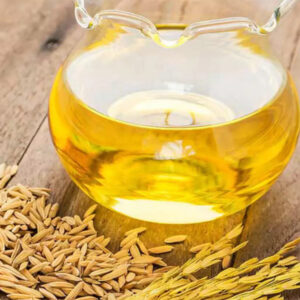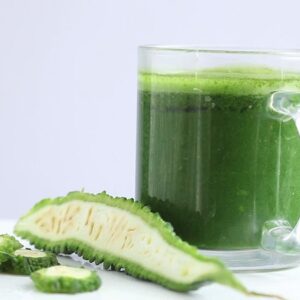Paneer, a versatile dairy product, has been a staple in Indian cuisine for centuries. Also known as Indian cottage cheese, paneer is celebrated not only for its rich taste but also for its numerous health benefits. From muscle-building protein to bone-strengthening calcium, paneer has rightfully earned its place as a versatile and nutritious dietary staple. Let’s explore the top 10 Paneer benefits, how to use paneer in your diet and nutrition facts.
What Is Paneer?
Paneer is a popular dairy product in Indian cuisine, often referred to as Indian cottage cheese. It is made by curdling milk with the help of an acidic substance, such as lemon juice, vinegar, or yoghurt. The curdled milk is then drained to separate the whey, leaving behind the solid curds that form paneer.
The process of making paneer involves heating milk to a certain temperature, adding the acidic agent to induce curdling, and then straining the mixture to separate the liquid whey from the curds. The collected curds are typically pressed into a block or cube shape to form a paneer.
Advantages of Eating Paneer:
1. Rich Protein Source:
Paneer is a high-quality protein source, essential for muscle growth and repair. This makes it an excellent choice for vegetarians and anyone looking to increase their protein intake.
2. Bone Health Booster:
Packed with calcium, paneer contributes to strong and healthy bones. Adequate calcium intake is crucial for preventing conditions like osteoporosis and maintaining overall bone density.
3. Low in Carbohydrates:
If you’re watching your carbohydrate intake, paneer is a low-carb delight. It’s an ideal choice for those on low-carb or ketogenic diets.
4. Weight Management Ally:
The protein in paneer not only helps in muscle building but also promotes a feeling of fullness, aiding in weight management by curbing unnecessary snacking.
5. Vitamin Powerhouse:
Paneer is rich in essential vitamins such as vitamin D, vitamin B12, and vitamin A. These play key roles in maintaining skin health, supporting the immune system, and promoting good vision.
6. Blood Sugar Regulation:
With a low glycemic index, paneer can be beneficial for regulating blood sugar levels. It provides a steady release of energy without causing rapid spikes in blood sugar.
7. Metabolism Booster:
The protein content in paneer requires more energy for digestion, leading to an increase in metabolic rate. This can be advantageous for those looking to boost their metabolism.
8. Fulfills Protein Deficiency:
Paneer is a valuable addition for individuals facing protein deficiencies. Its easy availability and versatility make it an accessible solution to meet protein requirements.
9. Digestive Health Support:
Paneer contains probiotics, which are beneficial bacteria that support gut health. Including paneer in your diet can contribute to a healthier digestive system.
10. Vital for Pregnancy:
During pregnancy, adequate protein and calcium intake is crucial for the health of both the mother and the developing baby. Paneer, being a rich source of these nutrients, can be a valuable addition to the diet during this crucial period.
Paneer Nutrition Profile:
Paneer, or Indian cottage cheese, is a nutritious dairy product that offers a range of essential nutrients. Here is a general overview of the nutritional profile of paneer per 100 grams:
- Protein: Paneer is an excellent source of protein, providing around 18-20 grams per 100 grams. This makes it a valuable protein source, especially for vegetarians.
- Fat: Paneer is a high-fat dairy product, containing approximately 20-22 grams of fat per 100 grams. The fat content contributes to its rich and creamy texture.
- Calories: Paneer is moderately high in calories, providing around 300-350 calories per 100 grams. This makes it an energy-dense food, suitable for those looking to meet their calorie requirements.
- Calcium: Rich in calcium, paneer is beneficial for bone health. It typically contains about 200-250 milligrams of calcium per 100 grams, contributing to the recommended daily intake of this essential mineral.
- Phosphorus: Paneer contains phosphorus, another mineral important for bone health and various physiological processes. It provides approximately 140-160 milligrams per 100 grams.
- Vitamins: Paneer is a good source of various vitamins, including vitamin D, vitamin B12, and vitamin A. The exact amounts can vary based on factors such as the type of milk used and the production process.
- Sodium: Paneer typically contains a moderate amount of sodium. The exact levels may vary depending on the specific manufacturing process and any added salt.
It’s important to note that the nutritional content can vary based on factors such as the brand, method of preparation, and the type of milk used (whole milk, skim milk, etc.). Additionally, while paneer offers several nutritional benefits, moderation is key, especially for those watching their calorie or fat intake.
Including paneer in a balanced diet can contribute to overall protein intake, bone health, and the fulfilment of certain micronutrient needs. As with any food, it’s advisable to consider individual dietary requirements and consult with a healthcare professional or nutritionist for personalized advice.
Paneer isn’t just a delicious part of Indian cuisine; it’s a nutritional powerhouse that brings a multitude of health benefits to the table. Whether you’re aiming for muscle gain, bone health, or overall well-being, incorporating paneer into your diet can be a flavorful and nutritious choice. As with any food, moderation is key, and consulting with a healthcare professional can help tailor your diet to meet your specific health needs. So, savour the goodness of paneer and relish the health benefits it graciously offers.
FAQs:
1. Is paneer suitable for lactose-intolerant individuals?
Paneer contains lower levels of lactose compared to other dairy products. While it may be better tolerated, those with lactose intolerance should monitor their body’s response.
2. How can paneer be included in a balanced diet?
Paneer can be added to salads, sandwiches, or enjoyed as a main dish. It can also be incorporated into various Indian dishes, providing a flavorful and nutritious element.
3. Is homemade paneer healthier than store-bought?
Homemade paneer allows you to control the ingredients and avoid additives present in some store-bought varieties. However, both can be part of a healthy diet when chosen wisely.
4. Can paneer be consumed during pregnancy?
Paneer is a good source of protein and calcium, which are essential during pregnancy. However, it is advisable to consult with a healthcare professional to ensure it aligns with individual dietary needs.
5. Does paneer contribute to high cholesterol?
While paneer is a dairy product and contains saturated fats, moderate consumption is unlikely to significantly impact cholesterol levels. It’s essential to maintain a balanced diet and lifestyle.





